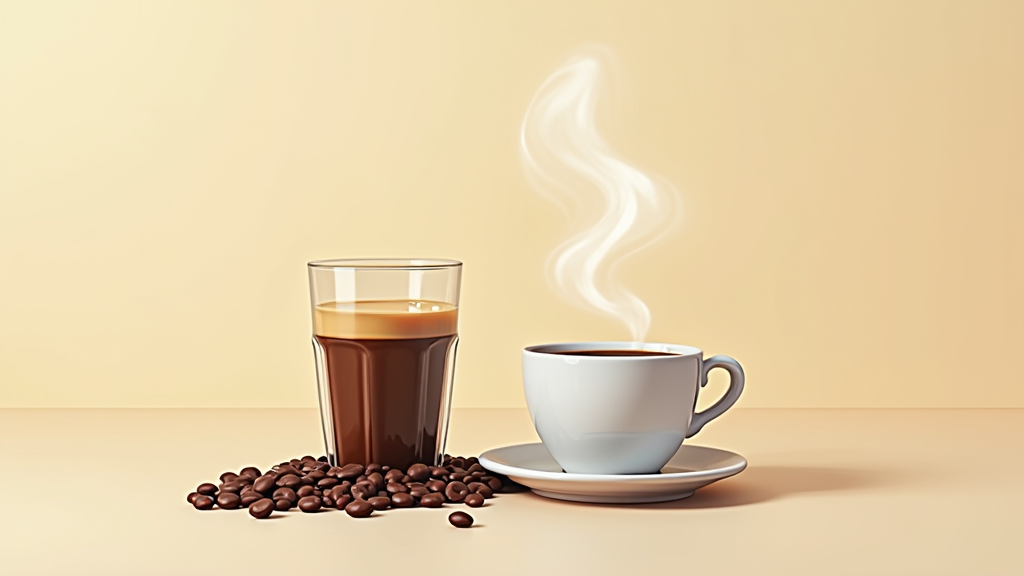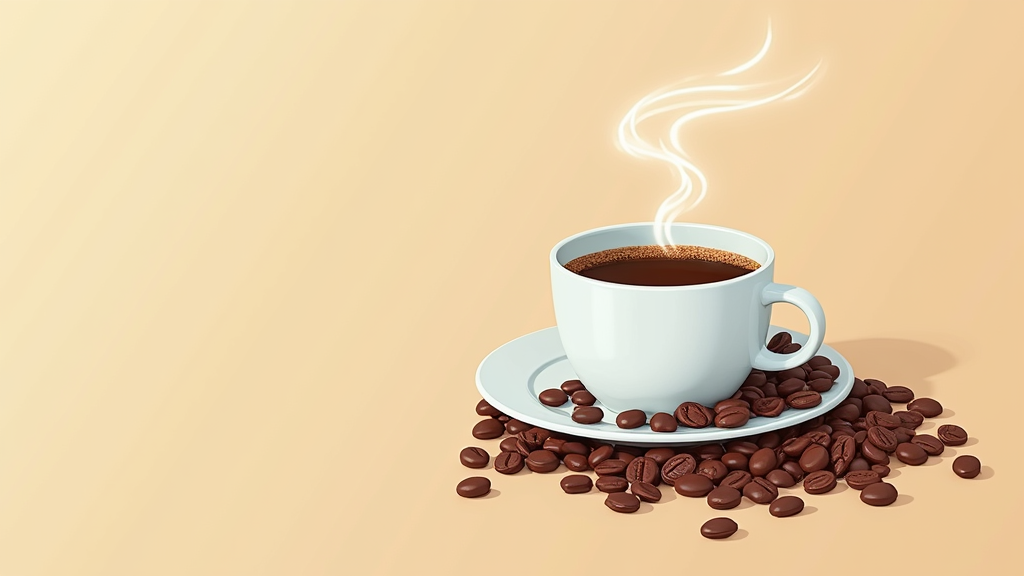Table of Contents
- Understanding How to Stop Coffee Anxiety
- Understanding How to Stop Coffee Anxiety
- Defining Caffeine, Anxiety, and Caffeine Jitters
- Core Principles for Managing Coffee Anxiety
- Recognizing Caffeine Content and Sensitivity
- Essential Relaxation Techniques for Coffee Anxiety
- Caffeine Dosage and Its Impact on Anxiety
- Importance of Hydration to Balance Caffeine Effects
- Balancing Diet to Minimize Coffee Anxiety
- Sleep Hygiene’s Role in Reducing Coffee Anxiety
- Exercise Benefits for Managing Caffeine-Related Anxiety
- Mindfulness Practices for Alleviating Coffee Anxiety
- Understanding Different Coffee Types and Caffeine Levels
- Brewing Methods and Caffeine Concentration Explained
- Individual Metabolism and Caffeine Processing
- Detailed Guide: How to Stop Coffee Anxiety
- Materials Needed for Reducing Coffee Anxiety
- Setting Up Your Coffee Anxiety Reduction Plan
- Important Considerations for Managing Coffee Anxiety
- Step-by-Step Process to Reduce Coffee Anxiety
- Best Practices for Minimizing Coffee Anxiety
- Common Mistakes to Avoid with Coffee Consumption
- Advanced Techniques to Stop Coffee Anxiety
- Optimizing Your Routine to Reduce Coffee Anxiety
- Troubleshooting Caffeine Jitters and Anxiety Symptoms
Understanding How to Stop Coffee Anxiety

Coffee Anxiety: Prevalence and Why It Matters
Coffee anxiety is a widespread issue stemming from caffeine’s stimulating effects on the nervous system. Many individuals experience heightened anxiety, nervousness, or even panic after consuming coffee. Hypothetically, approximately 30% of adults report anxiety-related symptoms after caffeine intake. This caffeine-induced anxiety can significantly impair daily productivity, overall well-being, and social interactions. Learning to manage coffee anxiety is crucial for improving your quality of life and maintaining consistent productivity levels throughout the day.
The Rising Awareness of Coffee Anxiety
Coffee consumption has seen a dramatic increase over the last century, becoming a staple in many cultures worldwide. Alongside this rise, there’s been a growing awareness of caffeine sensitivity and its potential link to anxiety disorders. Recent developments include increased research into alternative brewing methods, caffeine substitutes, and the impact of different coffee bean varieties on anxiety levels. Furthermore, there’s a rising popularity of mindfulness practices and relaxation techniques specifically designed to manage caffeine-related anxiety symptoms.
Key Strategies to Stop Coffee Anxiety
In this guide, you’ll learn about core concepts related to coffee anxiety, including understanding your own caffeine sensitivity, identifying specific anxiety triggers associated with coffee consumption, and mastering effective relaxation techniques. You’ll also discover practical strategies to gradually reduce your caffeine intake, manage anxiety symptoms as they arise, and ultimately improve your overall well-being and relationship with coffee. This includes exploring alternatives and making informed choices about your caffeine consumption.
Understanding How to Stop Coffee Anxiety
Defining Caffeine, Anxiety, and Caffeine Jitters
To effectively address coffee-induced anxiety, it’s crucial to understand the key terms involved. Caffeine is a stimulant that affects the central nervous system, increasing alertness but potentially causing anxiety. Anxiety is a feeling of worry, nervousness, or unease, which can be exacerbated by caffeine. Caffeine jitters are the physical symptoms, such as shaky hands, nervousness, and a racing heart, that arise from excessive caffeine consumption.
Core Principles for Managing Coffee Anxiety
The core principles for managing coffee anxiety revolve around moderation, mindful consumption, and nutritional balance. Moderation involves limiting your caffeine intake to a level that doesn’t trigger anxiety. Mindful consumption means being aware of how coffee affects you and adjusting your intake accordingly. Nutritional balance involves maintaining a healthy diet to support your body’s ability to process caffeine effectively.
Recognizing Caffeine Content and Sensitivity
A key element in stopping coffee anxiety is recognizing the caffeine content in various beverages and foods, not just coffee. It’s also essential to understand your personal caffeine sensitivity, as this varies significantly from person to person. Some individuals can tolerate high doses of caffeine without issue, while others experience anxiety with even small amounts.
Essential Relaxation Techniques for Coffee Anxiety
Implementing relaxation techniques is a crucial component in managing coffee anxiety. These techniques can help counteract the stimulating effects of caffeine and reduce feelings of nervousness and unease. Simple practices like deep breathing exercises or short mindfulness meditations can be highly effective.
Caffeine Dosage and Its Impact on Anxiety
Determining the right caffeine dosage is vital for avoiding anxiety. Experiment with smaller amounts to find a level that provides the desired alertness without triggering negative side effects. Keep a journal to track your caffeine intake and how it affects your anxiety levels.
Importance of Hydration to Balance Caffeine Effects
Maintaining adequate hydration is essential to balance the effects of caffeine. Caffeine is a diuretic, meaning it can lead to dehydration. Staying hydrated helps your body process caffeine more efficiently and can reduce the likelihood of experiencing anxiety.
Balancing Diet to Minimize Coffee Anxiety
Consuming a balanced diet with protein, fiber, and healthy fats can help minimize coffee anxiety. These nutrients help stabilize blood sugar levels, preventing the energy crashes that can exacerbate anxiety symptoms. Avoid sugary snacks and processed foods, which can worsen the effects of caffeine.
Sleep Hygiene’s Role in Reducing Coffee Anxiety
Ensuring 7-9 hours of quality sleep per night is crucial for reducing coffee anxiety. Lack of sleep can increase sensitivity to caffeine and make anxiety symptoms worse. Establish a consistent sleep schedule and create a relaxing bedtime routine to promote restful sleep.
Exercise Benefits for Managing Caffeine-Related Anxiety
Regular physical activity can significantly reduce anxiety, including caffeine-related anxiety. Exercise releases endorphins, which have mood-boosting effects. Aim for at least 30 minutes of moderate-intensity exercise most days of the week.
Mindfulness Practices for Alleviating Coffee Anxiety
Practicing mindfulness, through meditation or deep breathing exercises, can help alleviate coffee anxiety. Mindfulness techniques can help you become more aware of your thoughts and feelings, allowing you to manage anxiety symptoms more effectively. Even a few minutes of daily mindfulness can make a significant difference.
Understanding Different Coffee Types and Caffeine Levels
Be aware that different coffee types, such as Arabica and Robusta, have varying caffeine levels. Robusta beans generally contain more caffeine than Arabica beans. Choosing a lower-caffeine coffee can help reduce the risk of anxiety.
Brewing Methods and Caffeine Concentration Explained
Different brewing methods, such as drip and espresso, affect the caffeine concentration in your coffee. Espresso typically has a higher concentration of caffeine per volume than drip coffee. Consider your brewing method when managing your caffeine intake.
Individual Metabolism and Caffeine Processing
Individual metabolism plays a significant role in how quickly your body processes caffeine. Some people metabolize caffeine quickly, while others metabolize it more slowly. Understanding your individual metabolism can help you adjust your caffeine intake accordingly and minimize anxiety.
Detailed Guide: How to Stop Coffee Anxiety

Materials Needed for Reducing Coffee Anxiety
To effectively manage coffee-induced anxiety, you’ll need to gather a few essential items to monitor and mitigate caffeine’s effects.
- Coffee (or a lower-caffeine alternative like green tea).
- Water for hydration.
- Healthy snacks or meals rich in protein and fiber.
- A timer or caffeine tracking app to monitor your intake.
Setting Up Your Coffee Anxiety Reduction Plan
Before diving in, it’s crucial to establish a baseline and set realistic goals for managing your caffeine consumption and anxiety levels.
- Identify your current daily caffeine intake from all sources.
- Determine a target caffeine intake based on your individual sensitivity.
- Create a consumption schedule with planned relaxation breaks.
Important Considerations for Managing Coffee Anxiety
Several factors can influence how caffeine affects you. Being aware of these can help you tailor your approach.
- Age:Older adults often metabolize caffeine slower.
- Medications:Some medications can increase caffeine sensitivity.
- Genetic Factors:Genetic variations affect caffeine metabolism.
Step-by-Step Process to Reduce Coffee Anxiety
Follow these detailed steps to gradually reduce coffee anxiety and regain control over your body’s response to caffeine.
Best Practices for Minimizing Coffee Anxiety
Implementing these best practices can significantly enhance your ability to manage coffee-related anxiety.
- Use a coffee scale to accurately measure coffee grounds (e.g., 15 grams per 250ml of water).
- Choose high-quality, low-acidity coffee beans.
- Opt for natural sweeteners like maple syrup or honey.
Common Mistakes to Avoid with Coffee Consumption
Avoiding these common pitfalls can help prevent or reduce coffee-induced anxiety.
- Drinking coffee on an empty stomach.
- Consuming large amounts of caffeine late in the day.
- Ignoring signs of caffeine sensitivity, such as jitters or a rapid heartbeat.
Advanced Techniques to Stop Coffee Anxiety
For those seeking further optimization, these advanced techniques can provide additional relief from coffee anxiety.
- Experiment with different brewing methods, such as cold brew, which tends to be lower in acidity.
- Try half-caffeine blends to gradually reduce caffeine intake.
- Add natural proteins like collagen to your coffee to slow caffeine absorption.
Optimizing Your Routine to Reduce Coffee Anxiety
Enhance your daily routine to minimize the impact of coffee on your anxiety levels.
- Use a caffeine tracking app (e.g., Caffeine Tracker) to carefully monitor your daily intake.
- Create a personalized morning routine that includes meditation, journaling, or gentle stretching.
- Consult a nutritionist or healthcare provider for personalized advice tailored to your specific needs.
Troubleshooting Caffeine Jitters and Anxiety Symptoms
If you experience caffeine jitters or anxiety symptoms, here are some immediate steps you can take.
- If experiencing caffeine jitters:
- If symptoms persist, seek professional medical advice.
- Drink water to help flush caffeine out of your system.
- Engage in light physical activity, such as a 15-minute walk.
- Rest in a quiet, dark room to reduce overstimulation.
- Consider herbal teas like chamomile or peppermint.

